Fred Wong
An Interview with Pearl Wong, widow of Fred Wong
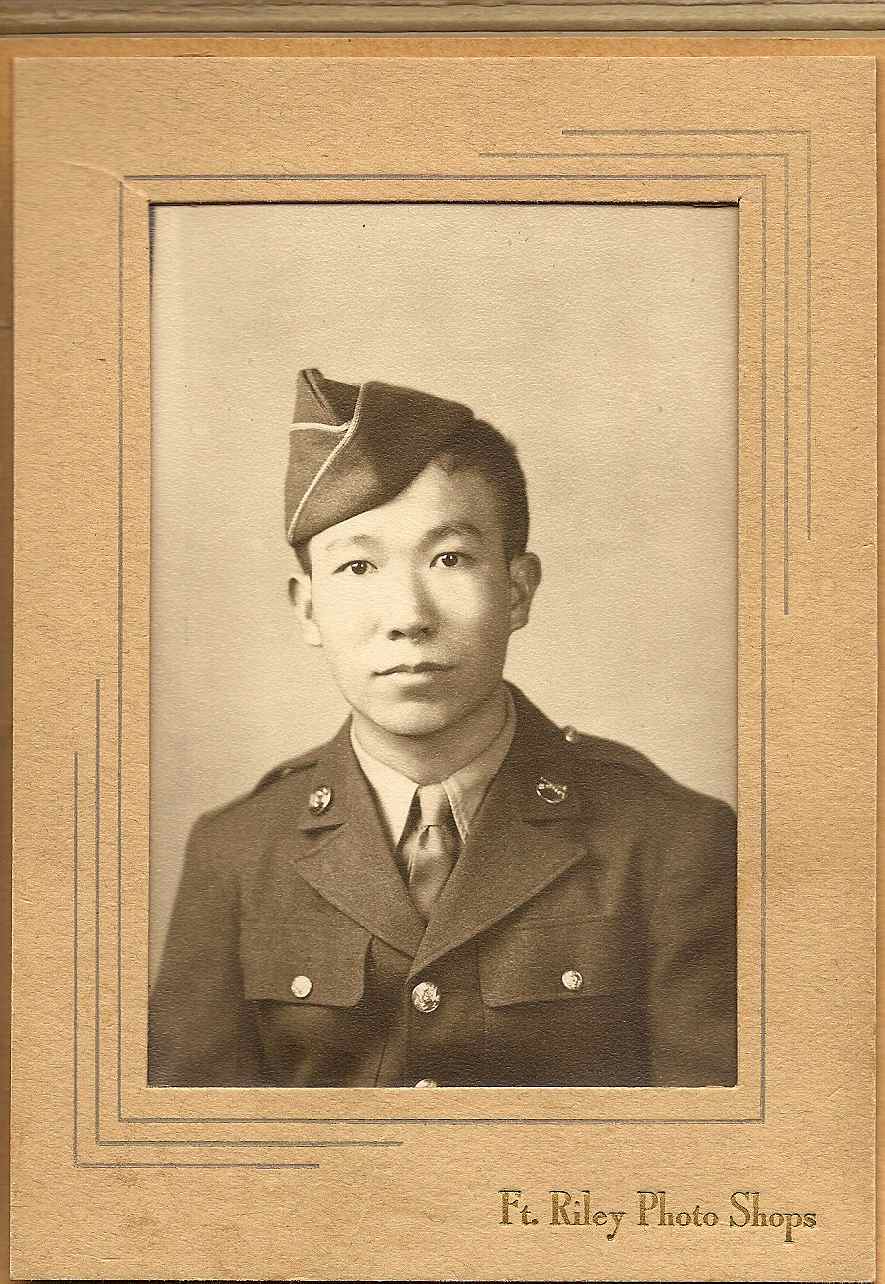 Fred — Fred was born in Taishan in China in 1926 and when he was 12, his father in Minneapolis sent for him. His father was actually a friend of the family who, for U.S. immigration purposes, claimed to have been his father. Fred came through Seattle and was detained by Immigration Services for about a month, during which time Immigration officers interrogated him repeatedly so as to ascertain that he was really his father?s son. Finally Fred successfully convinced them and was allowed to enter the U.S. Thus Fred became what had been euphemistically called a ‘paper son’.
Fred — Fred was born in Taishan in China in 1926 and when he was 12, his father in Minneapolis sent for him. His father was actually a friend of the family who, for U.S. immigration purposes, claimed to have been his father. Fred came through Seattle and was detained by Immigration Services for about a month, during which time Immigration officers interrogated him repeatedly so as to ascertain that he was really his father?s son. Finally Fred successfully convinced them and was allowed to enter the U.S. Thus Fred became what had been euphemistically called a ‘paper son’.
Fred arrived in Minneapolis to join his father in his apartment on 1423 E Lake St. His father arranged for him to start high school and then pretty much left him alone, being too busy with his job at the Foo Choo CafÄ (then located at Lake and Bloomington and owned by Jimmy Wong. This landmark restaurant later on moved to St. Louis Park.)
Alone in a strange town where everything was different from life in China, Fred was feeling lonely and adrift. He did not really have a home life here, since his father was working at Foo Choo every day of the week. He probably played in the park after school before going to the restaurant for his dinner. He was therefore happy to be drafted into the U.S. Army when he turned 18 in 1944. He was eager to serve his new country and enjoyed basic training at Fort Riley in St. Louis. The Army made him feel he belonged. Even though he was the only Chinese in the group he experienced no discrimination. Everyone treated him like a brother.
By the time Fred graduated from basic training, however, the War was over. He was instead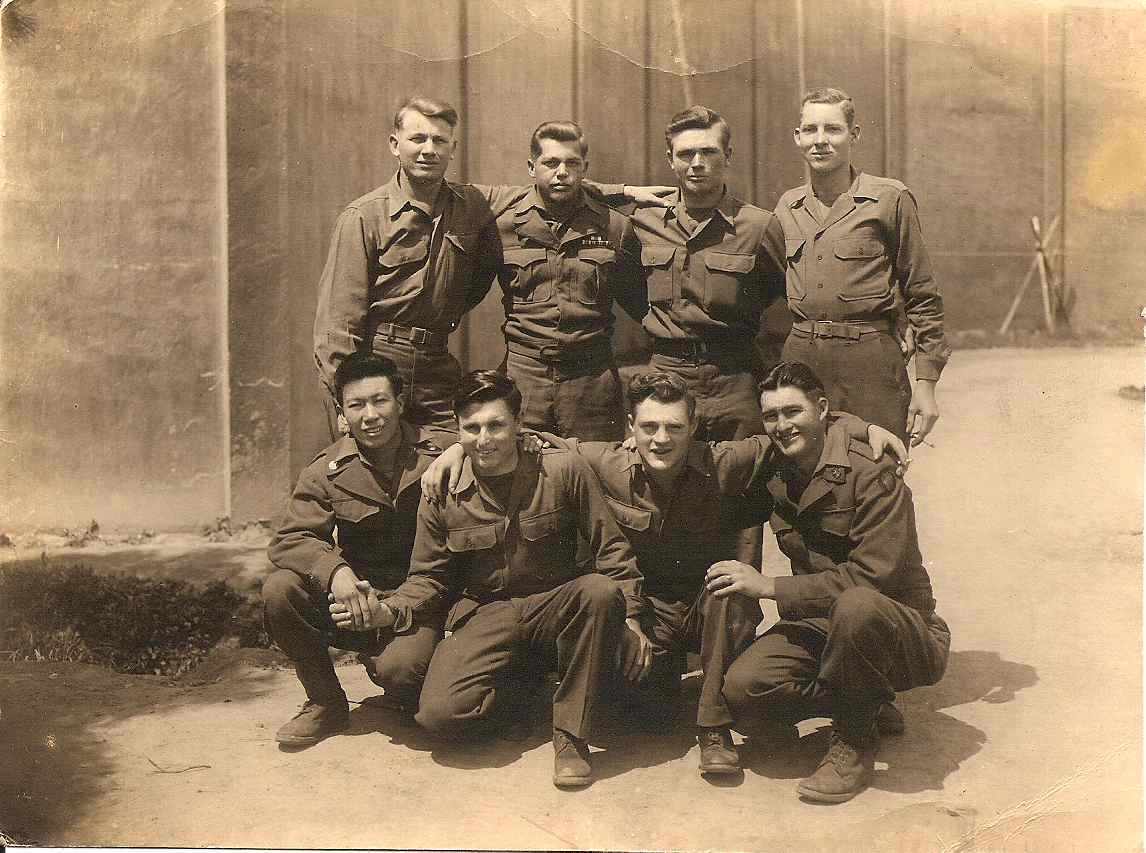 assigned to a tour of duty in Okinawa, Japan. He took his responsibilities as a scout and a lookout seriously. Armed and often on horseback, he worked hard to make sure there would be no Japanese attacks on their compound during his watch. Years later he would tell his children that he was not afraid to die should fighting erupt during his watch. He was immensely proud of having served his adopted country honorably.
assigned to a tour of duty in Okinawa, Japan. He took his responsibilities as a scout and a lookout seriously. Armed and often on horseback, he worked hard to make sure there would be no Japanese attacks on their compound during his watch. Years later he would tell his children that he was not afraid to die should fighting erupt during his watch. He was immensely proud of having served his adopted country honorably.
For security reasons U.S. soldiers were not allowed to interact with the local Japanese people or eat Japanese food on Okinawa. In 1947 Fred successfully completed his tour and returned to Minneapolis. He found that his father was ready to retire back to China and therefore accompanied him home. His plan was then to return to Minneapolis alone and start college.
Once in China, however, Fred found himself besieged by matchmakers who were offering to introduce him to dozens of eligible young ladies. Fred actually went through meeting some 60 young ladies, sometimes 2 in a day! The matchmakers would arrange for casual ?accidental? occasions where Fred could meet and ?look over? a potential mate. Fred could then decide afterwards if he would like to get to know the girl better. All this was usually done without the girls? knowledge.
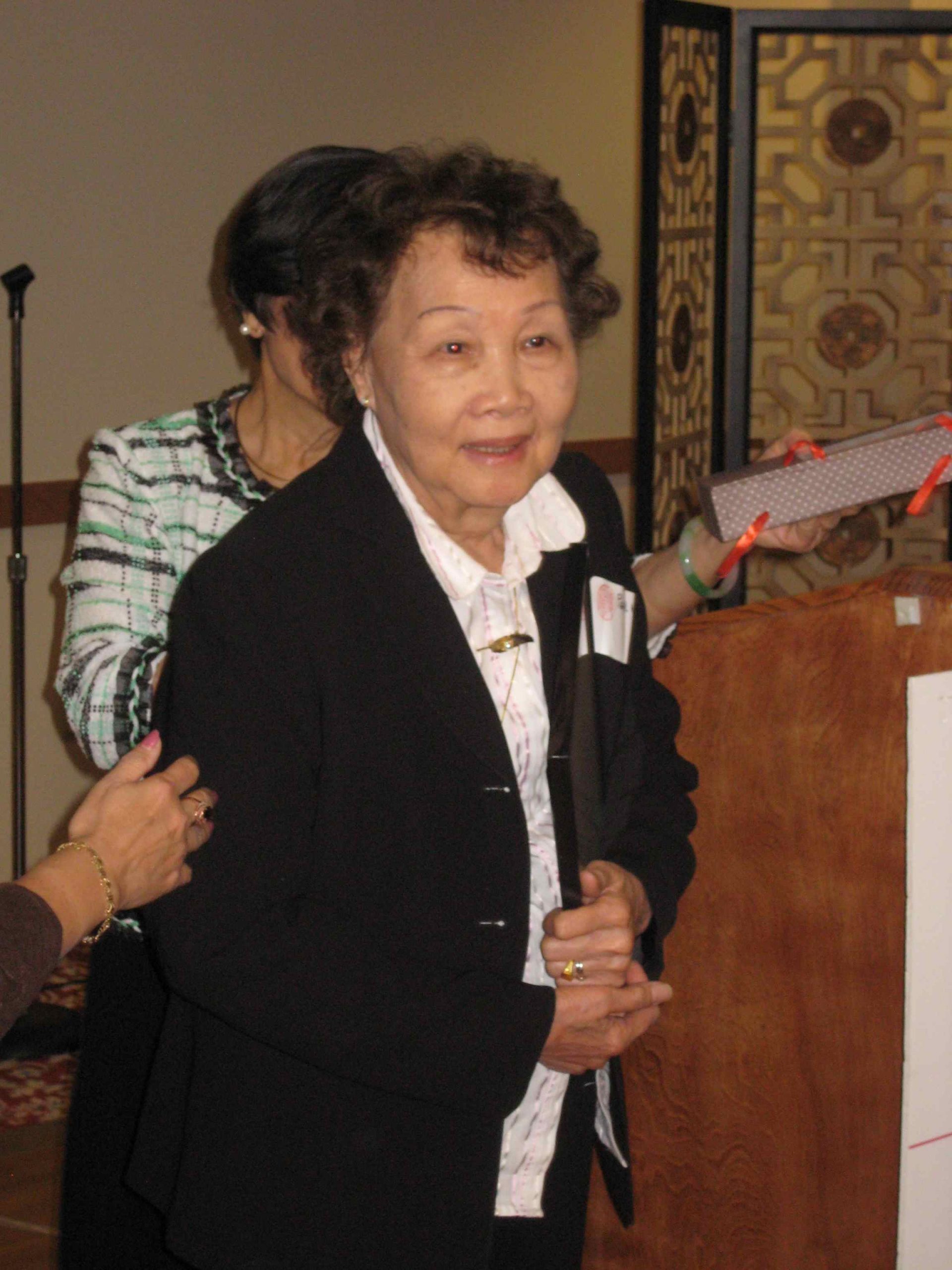 Pearl — My father was a businessman in Guangzhou. He was primarily a money exchanger who dealt in jewelry on occasion. He did well and our family was comfortable. When the War started and Japan began bombing Guangzhou our family moved back to our village in Taishan. We rented half a house and my father resumed his business and established a store. In 1941 when Japan invaded and took over Hong Kong, overseas money wiring from the U.S. trickled to a stop. Many villagers who had depended on these wirings for their livelihood began to experience difficulties. They started bringing their gold and jade jewelry to my father asking for cash in exchange. My father had such a fine reputation that people came long distances in order to deal with him. Thus was my father able to provide for our family throughout the War. I remember stopping at his store after school and telling him I was hungry. He would send someone right away over to the restaurant to buy me a treat. We were so fortunate that we did not have to suffer and that there was no bombing in our village. Later on after the War ended and overseas money began to flow again, people would come back to my father’s store hoping to buy their jewelry back.
Pearl — My father was a businessman in Guangzhou. He was primarily a money exchanger who dealt in jewelry on occasion. He did well and our family was comfortable. When the War started and Japan began bombing Guangzhou our family moved back to our village in Taishan. We rented half a house and my father resumed his business and established a store. In 1941 when Japan invaded and took over Hong Kong, overseas money wiring from the U.S. trickled to a stop. Many villagers who had depended on these wirings for their livelihood began to experience difficulties. They started bringing their gold and jade jewelry to my father asking for cash in exchange. My father had such a fine reputation that people came long distances in order to deal with him. Thus was my father able to provide for our family throughout the War. I remember stopping at his store after school and telling him I was hungry. He would send someone right away over to the restaurant to buy me a treat. We were so fortunate that we did not have to suffer and that there was no bombing in our village. Later on after the War ended and overseas money began to flow again, people would come back to my father’s store hoping to buy their jewelry back.
I had several sisters, some of whom did not survive to adulthood. In 1947 I was 17 and going to school at the time. One day I ran into my great aunt who happened to have a young man with her. I thought nothing of this chance encounter, other than to mention this to my mother when I got home. Some time later my great aunt came to our house and mentioned that there was a nice young man, Fred, who wanted to meet me. Both my parents were reluctant. My father wanted me to stay in school and my mother was not ready to have me leave her yet. But then one day I overheard my mother telling her sister that Fred and his father were coming over to tell them about how much property they had, etc. At the time there were many (almost a back log, because of the impossibility of travel during the War years) Chinese American GIs who had come back to China looking for wives.
Somehow it was decided that Fred would be a good match for me. I had nothing to do with that decision whatever. It was arranged for me to meet Fred in a teahouse and to get to know him a bit. We went to a movie and I took along two of my girlfriends. I did not know what I was supposed to do.
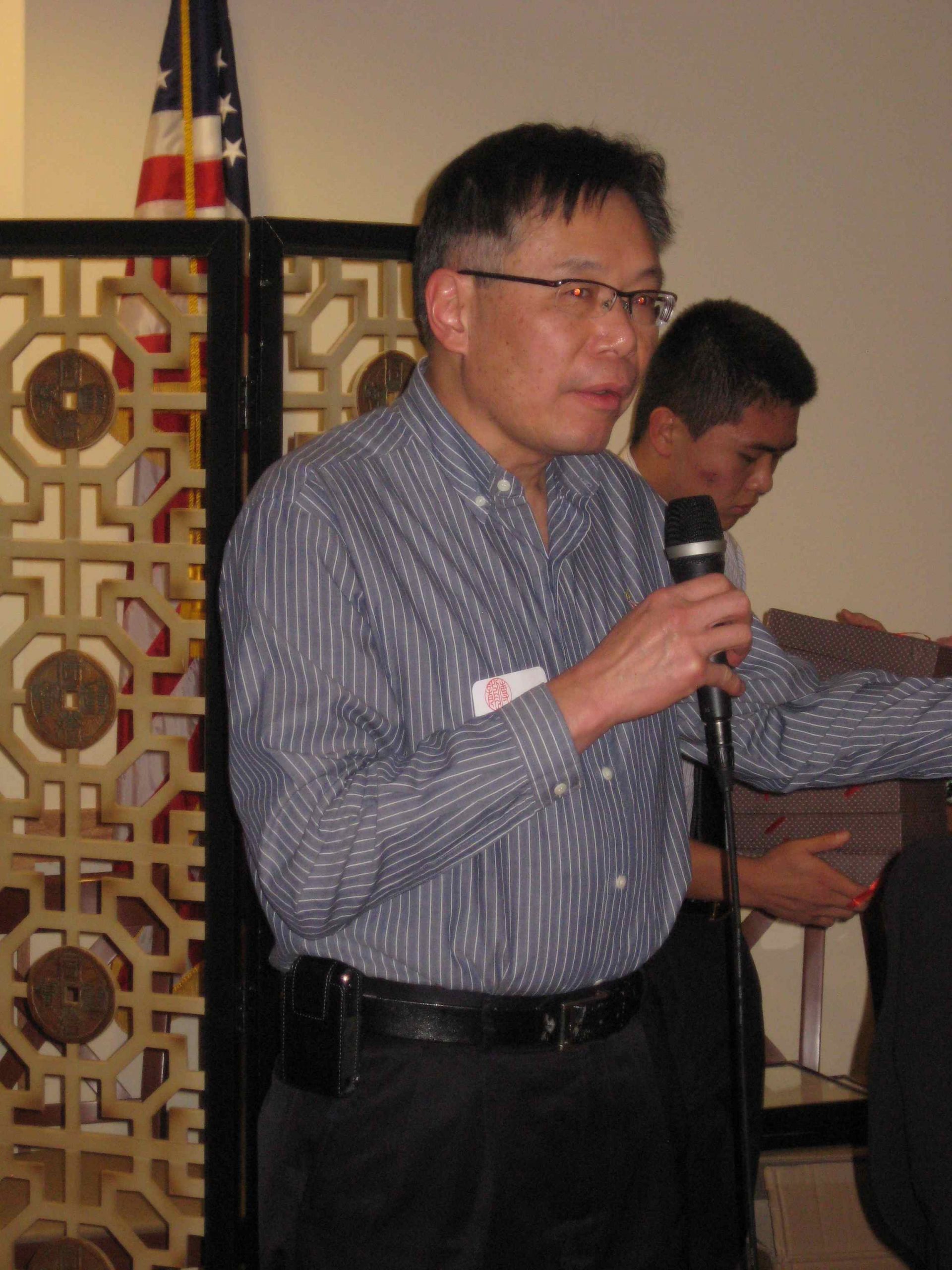 There was a big wedding celebration for us. Afterwards I went home with Fred and we lived in his parents? house, as was the custom. Fred, always eager to learn, wanted to brush up on his Chinese and found a private tutor for himself in Guangzhou. While he was thus occupied I went back to school also. After a few months we left for the U.S, aboard a ship that took 18 days to cross the Pacific Ocean. When we finally docked, I was able to pass through Immigration easily on the strength of Fred being a veteran.
There was a big wedding celebration for us. Afterwards I went home with Fred and we lived in his parents? house, as was the custom. Fred, always eager to learn, wanted to brush up on his Chinese and found a private tutor for himself in Guangzhou. While he was thus occupied I went back to school also. After a few months we left for the U.S, aboard a ship that took 18 days to cross the Pacific Ocean. When we finally docked, I was able to pass through Immigration easily on the strength of Fred being a veteran.
In Minneapolis Fred went to Dunwoody Institute on the GI Bill and became a tool and die maker. He worked in a store on 98th and Lyndale Ave. as an engineer and mechanic. He always loved to learn and studied energetically with all 6 of our children. One of his proudest moments as a father was taking the entire family on a vacation trip to St. Louis and visiting Fort Riley. He retired at age 60.
My father came over to visit in 1962 and my mother (known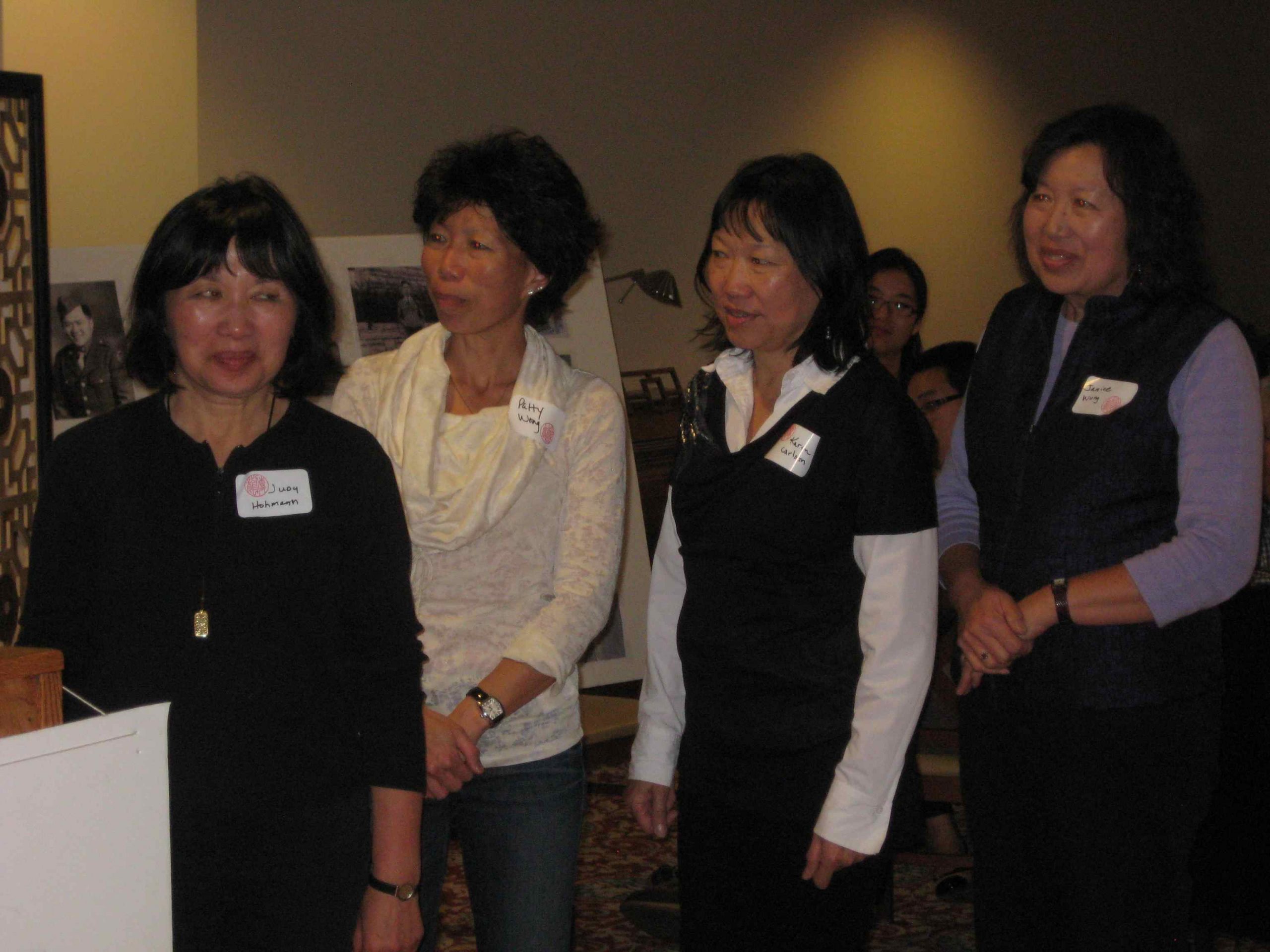 to everyone here as Grandma Lei) immigrated here in 1968. We celebrated her 100th birthday a few years ago. Under communist rule in China my father was not able to retain his business as a money exchanger.
to everyone here as Grandma Lei) immigrated here in 1968. We celebrated her 100th birthday a few years ago. Under communist rule in China my father was not able to retain his business as a money exchanger.
